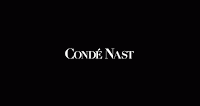 Internships have often been considered the
stepping-stones for students to get their foot in the door in the working
world. With Drexel University's education being so strongly based around the
co-op system, it is easy for fellow Drexel students to understand the
importance of these opportunities. At the same time, in recent years there has
been an on going debate regarding the fairness of internships, specifically
ones that are unpaid. In many creative fields, the line is blurred between
where educational internships end and where unfair and exploitative internships
begin. This blurred line has caused several lawsuits to pop up within the past
year. The question on many people’s mind now is, will these lawsuits help or
hurt young inspiring professionals?
Internships have often been considered the
stepping-stones for students to get their foot in the door in the working
world. With Drexel University's education being so strongly based around the
co-op system, it is easy for fellow Drexel students to understand the
importance of these opportunities. At the same time, in recent years there has
been an on going debate regarding the fairness of internships, specifically
ones that are unpaid. In many creative fields, the line is blurred between
where educational internships end and where unfair and exploitative internships
begin. This blurred line has caused several lawsuits to pop up within the past
year. The question on many people’s mind now is, will these lawsuits help or
hurt young inspiring professionals?
Conde Nast, a powerhouse
in the mass media industry, announced in late October that they plan to
discontinue its internship program by 2014. This decision came four months
after former interns slammed the mass media company with two different
lawsuits. Conde Nast, which is based in New York City, owns 25 print and
digital media brands including Architectural Digest, Don appetite, Glamour,
Golf Digest, GQ, The New Yorker, Vanity Fair, and Vogue.
So what does this mean
for the future of aspiring journalist who will now be denied the ability to
intern at these publications? Though it is unfair for these companies to ask
young interns to work long hours for free, do the positives of many of these
internship opportunities outweigh the long hours of unpaid work being
sacrificed?
Will young students lose
their chance to get an insider’s experience at the companies they wish to work
at? For many former interns of Conde Nast these internships helped pave the way
to their current careers through the experiences they gained. Former Vogue
intern Lauren Indvik, who is soon-to-be-co-editor in chief at Fashionista, says
her internship was “So valuable” when asked her opinion about these recent
negative claims. Internships allow people to learn how the company is run, gain
skills taught to them by their employer, and build relationships with important
people in the industry. They learn what it’s like to be in a professional
setting and what it means to be dedicated to that company. All of these things
help lead to future job opportunities. It also allows interns to realize
if that specific career path is still what they want to pursue after
graduation.
However, critics say that
unpaid internships make it harder for students with lower financial backgrounds
to get their foot in the door. But at the same time, these unpaid jobs can
be compared to the large tuition fees many students pay to receive a college
education. People have said hands on experience can be the best way to learn.
This is especially true for many people in a creative industry. So what is the
difference between sacrificing time to work unpaid in your desired industry and
sacrificing money to earn a college degree? Students go into these internship
programs aware of the little to no compensation but still choose to complete
them. This is similar to how students enter a University willing to pay for the
knowledge and education the school will provide for the next four years. The
end goal of both is getting the young professional a job in the future.
Consequently, eliminating
the intern program will open more entry-level positions for young people to get
hired post graduation. Publications owned by Conde Nast will now be forced to
hire additional employees to complete assignments no longer being completed by
interns. This means more permanent paid job opportunities, which is beneficial
after all for upcoming graduates entering the work force.


No comments:
Post a Comment